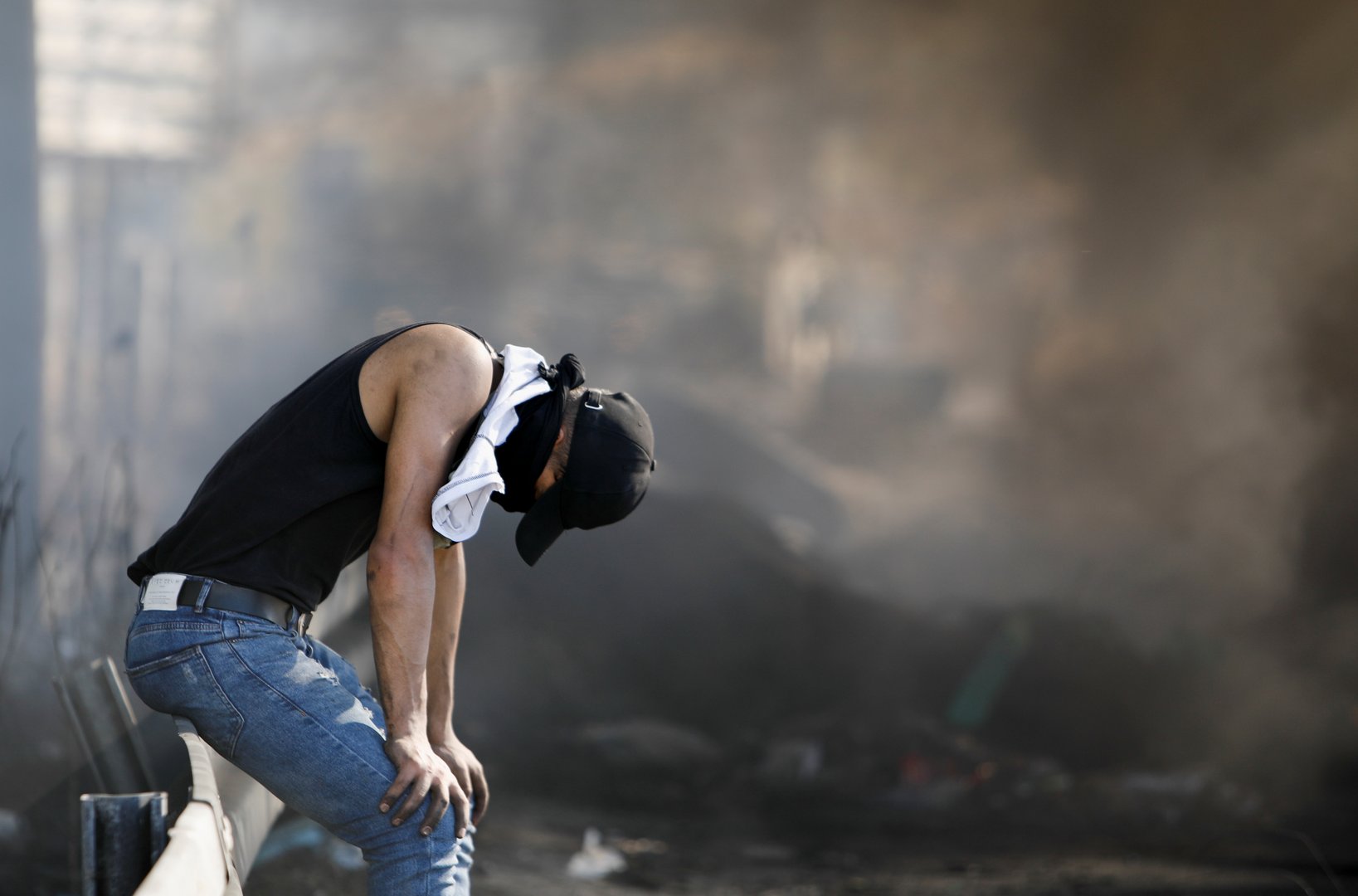Israel bombarded Gaza with air strikes and Palestinian militants kept up cross-border rocket fire, with no firm sign on Wednesday of any imminent ceasefire despite international calls to end more than a week of fighting.
Israeli leaders said they were pressing on with an offensive against Hamas and Islamic Jihad, but an Israeli military spokesman acknowledged that with an estimated 12,000 missiles and mortars in the groups’ Gaza arsenal, “they still have enough rockets to fire”.
Two Thai workers were killed and seven people were wounded in a rocket strike on Tuesday on an Israeli farm just over the Gaza border, police said. Hamas, which rules the Gaza Strip, and Islamic Jihad claimed responsibility.
Rockets were also launched early on Wednesday, with sirens sounding in the coastal city of Ashdod, south of Tel Aviv, and in communities closer to the Gaza border. There were no reports of damage or injuries.
Gaza medical officials say 217 Palestinians have been killed, including 63 children, and more than 1,400 wounded since the fighting began on May 10. Israeli authorities say 12 people have been killed in Israel, including two children.
Israel said its aircraft attacked homes belonging to several Hamas militants that were used as command centres or for weapons storage. Israeli artillery shelled targets in the southern Gaza Strip, witnesses said.
Nearly 450 buildings in the Gaza Strip have been destroyed or badly damaged, including six hospitals and nine primary-care health centres, since the current conflict began, the United Nations humanitarian agency said. Some 48,000 of the 52,000 displaced had gone to 58 U.N.-run schools.
Israel said more than 3,450 rockets had been launched at it from Gaza, some falling short and others shot down by its Iron Dome air defences. It put the number of militants it has killed at around 160.
Hamas began firing rockets nine days ago in retaliation for what it said were Israeli rights abuses against Palestinians in Jerusalem during the Muslim holy month of Ramadan.
By linking its confrontation with Israel to the sensitive issue of Jerusalem, Hamas also posed a challenge to its main rival, West Bank-based President Mahmoud Abbas, who last month cancelled a parliamentary election in which the group appeared likely to make gains.
The current hostilities are the most serious between the militant group and Israel in years, and in a departure from previous Gaza conflicts have helped fuel street violence in Israeli cities between Jews and Arabs.
DIPLOMACY
France called on Tuesday for a U.N. Security Council resolution on violence between Israel and Palestinian militants, as diplomats said the United States told the body a “public pronouncement right now” would not help calm the crisis.
“Our goal is to get to the end of this conflict. We are going to evaluate day by day what the right approach is. It continues to be that quiet, intensive behind-the-scenes discussions are tactically our approach at this time,” White House press secretary Jen Psaki told reporters on Tuesday.
Egypt and U.N. mediators also stepped up diplomatic efforts, and the U.N. General Assembly will discuss the violence on Thursday.
Germany called for a ceasefire and offered more aid to help Palestinians before emergency European Union talks.
Clashes also flared in the occupied West Bank, where Israeli forces shot dead a Palestinian who tried to attack them with a gun and improvised explosives on Tuesday, the military said.
Another Palestinian was killed by Israeli forces at a West Bank protest, health officials said. The military said soldiers had come under fire, which wounded two of them, and shot back.
Israel’s bombardment of Gaza, Ramadan clashes between police and worshippers at al-Aqsa Mosque in Jerusalem and a court case by Israeli settlers to evict Palestinians from the Sheikh Jarrah neighbourhood in Israeli-annexed East Jerusalem have fuelled the tensions in the West Bank.
Israel’s N12 TV news, quoting unidentified Palestinian sources, reported that Egypt, via “secret channels”, had proposed that Israel-Gaza fighting end on Thursday morning.
Ezzat El-Reshiq, a member of Hamas’ political bureau who is based in Qatar, issued a statement on Tuesday saying reports that it had agreed to such a ceasefire were untrue.
“There has been no agreement reached over specific timings for a ceasefire,” he said. “We confirm that efforts and contacts are serious and are continuing and the demands of our people are known and clear.”
Israeli Prime Minister Benjamin Netanyahu reiterated in a post on Twitter on Tuesday that Israel’s attacks “will continue for as long as it takes to restore calm” for all of its citizens.
Netanyahu said Israel’s strikes had “set Hamas back many years” – which some Israeli news commentators took as a possible prelude to a ceasefire within days when he could claim victory.
But Amos Yadlin, a former Israeli military intelligence chief, said the picture was more complicated, citing civil unrest in Israel, mounting protests by Palestinians in the occupied West Bank and a trickle of rocket fire from Lebanon.
“As far as (Hamas) is concerned, what’s happening in the West Bank and maybe with (the Lebanese group) Hezbollah and Israel’s Arab citizens – this is where it has won,” Yadlin said on Channel 12 TV. “In the military game, they’ve lost.”







Click here to change your cookie preferences